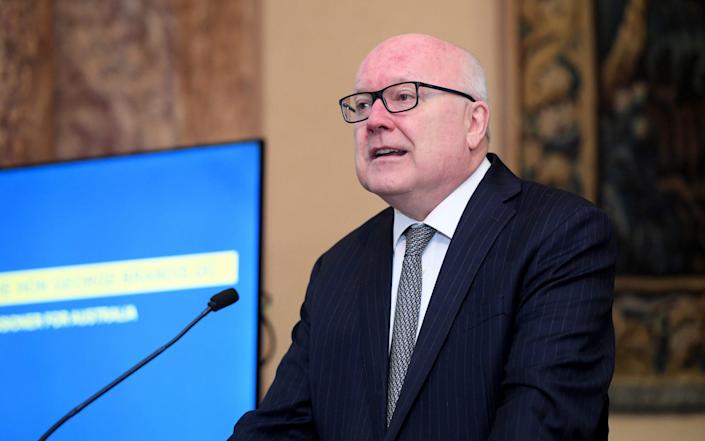
Britain’s flagship trade deal with Australia was almost derailed by anti-Brexit civil servants, Canberra’s former ambassador to London said on Wednesday night.
George Brandis, the ex-high commissioner, added “Whitehall horror” over leaving the EU led to some UK negotiators displaying “reluctance bordering on hostility” in the talks.
He accused the Department for Environment, Food and Rural Affairs (Defra), which represents British farmers, of being the most obstructive.
Mr Brandis, who was in post throughout the negotiations, said Liz Truss, the Foreign Secretary, and Dan Tehan, the Australian trade minister, were “both fighting Whitehall”.
‘Culture of protectionism’
In an interview with The Spectator, he said: “The default position in Whitehall was horror at Brexit.
“It was kind of like a cringe or a crouch, recoiling and willing it not to happen, or being in denial that it was happening.
“The Whitehall establishment wanted to maintain this whole culture of protectionism and that set Whitehall completely at variance from the government’s priority.
“It was more than inertia, it was reluctance bordering on hostility in some departments – most notably Defra.
“So there were really three sides to the trade negotiation: a large element of the Whitehall establishment, the Australian side, and then Liz Truss and those close to her.
“We were, in a sense, both fighting Whitehall.”
Trade talks between Britain and Australia began in June 2020 but became bogged down due to fears over the impact on UK farmers.
Ms Truss and George Eustice, the Environment Secretary, were said to have had a “ferocious row” about plans to slash tariffs and quotas on Australian lamb and beef.
The landmark agreement, which the Government says will boost trade between the two countries by £10.4 billion, was eventually signed last December.
Mr Brandis, who left his post as Australian ambassador on April 30 after four years, has made a series of upbeat predictions about post-Brexit Britain.
Last week, he criticised foreign office diplomats for being too negative about the UK and its standing in the world.
He said London has “a lot of moral authority in faraway places” and civil servants should stop feeling “guilty about Britain’s imperial past”.
“I wish the self-lacerating classes in Britain would realise that the world respects their own country a lot more than a lot of them do”, he added.
He also put Boris Johnson’s 2019 election victory down to “the sense of confidence he projected in a country that had seemed to almost lose its way”.




